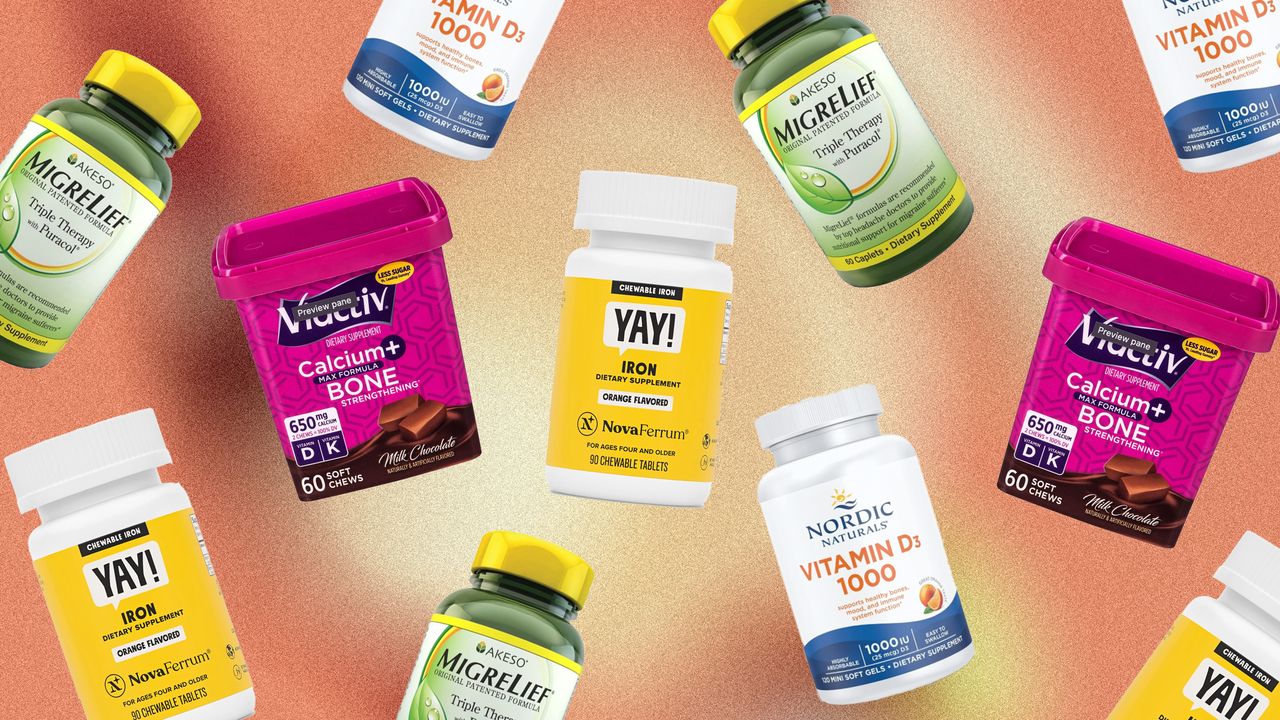Many teens don’t get enough vitamin D. In fact, some studies have estimated that nearly 20% of adolescents and 32% of young adults qualify as vitamin D deficient, according to Dr. Gorab. Teens with an increased risk of deficiency, including those with chronic diseases, may need a higher daily dose and should check with their doctor on that, she says. “Puberty is a time of rapid growth for the human body and vitamin D is essential for strengthening our bones and supporting our immune system.”
Iron deficiency can happen in teenage girls who have irregular periods (think: heavy or prolonged bleeding, or cycles that happen more than every 28 days), as well as teens in the throes of a growth spurt, Dr. Scripps says, which tends to happen around age 10-14 years old for girls and 12-16 years old boys.
Although vegetarian and vegan diets have some health benefits, teenage boys and girls who follow vegetarian or vegan diets are at higher risk for certain vitamin deficiencies. According to Dr. Scripps, some of the most common nutrient deficiencies in teens on plant-based diets are iron, calcium, vitamin D, vitamin B12, and zinc.
“Vegetarians and vegans should be mindful of eating good sources of omega-3 fatty acids like flaxseed, walnuts, canola oil, and soy,” Dr. Scripps advises. “Nutritional sources rich in zinc include whole grains, legumes, and nuts. Alternatives to dairy for good nutritional sources of calcium include kale, broccoli, bok choy, and dried figs.”
Are there side effects of taking vitamins as a teen?
Many over-the-counter vitamin supplements are largely safe, but taking too many of them can be toxic, Dr. Gorab warns. In fact, Dr. Scripps says, going beyond the daily recommended dosing of any vitamin “can be very harmful and dangerous.”
Specifically, it’s wise to be extra cautious with fat-soluble vitamins, including vitamin A, vitamin D, vitamin E, and vitamin K, since they are stored in your fat tissue and liver and thus aren’t easily eliminated from the body when consumed in excess. By contrast, water-soluble vitamins, including vitamin C and the B-complex vitamins (thiamin, riboflavin, niacin, pantothenic acid, pyridoxine, biotin, vitamin B6, folate, and cobalamin), enter your bloodstream and when there’s too much of them, your body simply pees out the extra, Dr. Gorab explains. Taking large doses of vitamins, especially those that are fat-soluble, can cause side effects such as rashes, nausea, GI problems, headaches, and even more severe medical issues, she says.
Also worth noting: Vitamins and dietary supplements can sometimes mess with your GI system if you down them on an empty stomach, Dr. Scripps says. For that reason she recommends taking all vitamins with food. Along those lines, keep in mind that constipation can be a side effect of taking vitamins and supplements with iron.
Lastly, remember that unlike pharmaceutical drugs, vitamins and supplements are not required by law to prove to the FDA that they meet quality standards, says Dr. Hunter. This means that “many supplements and vitamins are not tested and can contain more or less of the vitamin than is listed on the label,” she explains. Plus, some products may even be contaminated with harmful ingredients, like heavy metals and pharmaceuticals.
Are vitamins good for puberty?
We probably don’t need to tell you that there’s a lot of physical growth that happens when you’re a teen. This brings with it increased nutritional needs. “A lot of times the parents as well as teens don’t really know that, so they are still eating the same way they normally would, yet their body needs a little bit more,” says Dr. Cason-Wilkerson.

